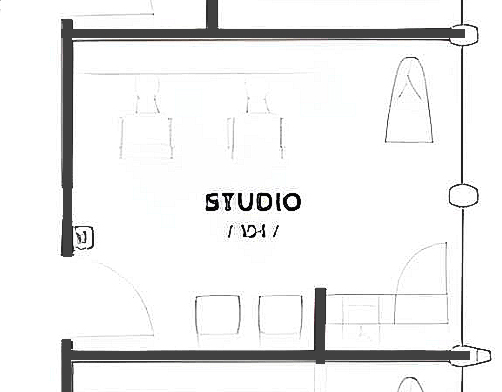Elegant Barbershop: Quality Cuts and Grooming Providers
Elegant Barbershop: Quality Cuts and Grooming Providers
Blog Article
Strategic Choices: Weighing the Benefit of Renting Out Versus Possessing a Hair Salon Area to Enhance Long-Term Success and Financial Stability
When it concerns developing a beauty salon organization, among the essential choices that proprietors have to very carefully take into consideration is whether to rent out or have the space in which they run. The selection between renting and having a beauty salon area can have a significant effect on the long-term success and economic wellness of business. Variables such as operational flexibility, economic implications, and investment potential play a vital function in this calculated decision-making process. By exploring the advantages and disadvantages of each alternative, hair salon owners can make informed selections that straighten with their company goals and aspirations.

Advantages And Disadvantages of Leasing
When considering the decision in between renting out a beauty salon area or possessing one, it is necessary to consider the advantages and disadvantages of renting out to make an informed selection. One primary advantage of renting a beauty parlor room is the versatility it provides. Leasing enables beauty parlor proprietors to check different places or upscale their company without the dedication of a long-term mortgage. Furthermore, renting normally entails fewer upfront costs, making it a much more available alternative for new salon owners or those with spending plan restraints.

Financial Elements to Consider

Thinking about the monetary effects of renting out a hair salon area versus possessing one is vital for making a knowledgeable business decision. When assessing the monetary factors, it is important to assess the first prices linked with each option. Renting out a beauty salon area normally calls for a safety and security deposit and regular monthly lease settlements, whereas possessing entails a deposit, home mortgage settlements, real estate tax, and maintenance expenses.
In addition, the long-lasting monetary implications vary between renting and possessing. On the various other hand, owning a beauty salon room uses potential equity development and the chance to build properties.
Furthermore, consider the effect on money circulation and earnings. Renting might provide reduced upfront prices, enabling you to allot more sources to advertising and business development. In contrast, having requires a substantial preliminary investment however might result in set you back savings in the future. Assessing these economic elements adequately will help you make a calculated choice that enhances your hair salon's long-term success and economic viability.
Operational Flexibility and Control
Ideal operational about his efficiency plays an essential role in figuring out the balance in between versatility and control when choosing between renting out and having a beauty parlor space. Renting out a beauty parlor area supplies inherent adaptability as it enables for much easier changes to altering market problems, client preferences, or service needs.
On the various other hand, having a salon area supplies a better sense of control over the building and its operations. Proprietors have the flexibility to tailor the space to their taste, implement lasting techniques without the threat of lease terminations, and possibly build equity gradually. Possession likewise comes with duties such as residential or commercial property upkeep, insurance policy, and residential or commercial property tax obligations, which can influence the overall financial commitment.
Inevitably, the choice between renting and having must think about the wanted degree of functional adaptability and control that aligns with the beauty salon's long-lasting objectives and vision.
Financial Investment Possible in Possession
Provided the functional considerations talked about earlier, exploring the investment potential in salon possession clarifies the monetary effects and long-term benefits that come with possessing a hair salon area. Beauty salon ownership offers a special chance for entrepreneurs to develop equity and assets with time. By purchasing a beauty salon space, proprietors have hair salons close to my location the prospective to benefit from residential or commercial property appreciation, which can work as an important asset in the lengthy run. Additionally, possessing a beauty parlor provides security in terms of set mortgage settlements, providing predictability in monetary planning contrasted to varying rental prices.
Furthermore, ownership permits greater control over the room, enabling owners to personalize and customize the salon to their particular brand name and vision without the constraints typically enforced by landlords. This level of control can improve the general consumer experience and brand identification, possibly resulting in increased customer retention and business growth.
In terms of investment capacity, possessing a salon space can also open up opportunities for extra earnings streams, such as leasing unused area to other charm experts or integrating retail sales within the beauty parlor. Hair salon. These diversified earnings sources can add to the overall financial health and wellness and sustainability of the company
Long-Term Stability and Growth
With a concentrate on sustainability and development with time, developing long-lasting stability and fostering growth are pivotal aspects of salon ownership. To make certain lasting stability, salon proprietors have to meticulously think about aspects such as location, market trends, and economic preparation. Selecting between renting out and possessing a beauty parlor area plays a substantial function in establishing the organization's growth capacity.
Leasing a beauty salon room gives flexibility and lower initial expenses, permitting owners to allocate resources in the direction of improving solutions and advertising and marketing efforts. Nevertheless, long-lasting rental prices can affect profitability and restrict the capability to build equity in the home. On the various other hand, owning a hair salon space supplies stability with fixed mortgage settlements and the potential for building gratitude. By having the room, beauty salon proprietors have even more control over customizing the residential property to suit their brand and can gain from long-term property development.
Ultimately, the decision in between renting out and possessing a hair salon space should align with the owner's long-term business goals and financial objectives. Whether prioritizing flexibility or equity structure, a critical strategy to property ownership can significantly impact the salon's security and development trajectory.
Verdict
To conclude, the choice in between leasing and owning a salon room requires a careful assessment of economic aspects, functional flexibility, investment possibility, and long-lasting stability. Both options feature their very own set of benefits and negative aspects, and it is necessary for salon proprietors to weigh these variables to maximize long-lasting success and monetary viability. Booth rental. Inevitably, the anonymous choice in between leasing and owning must be based on a comprehensive evaluation of private company objectives and scenarios
Report this page